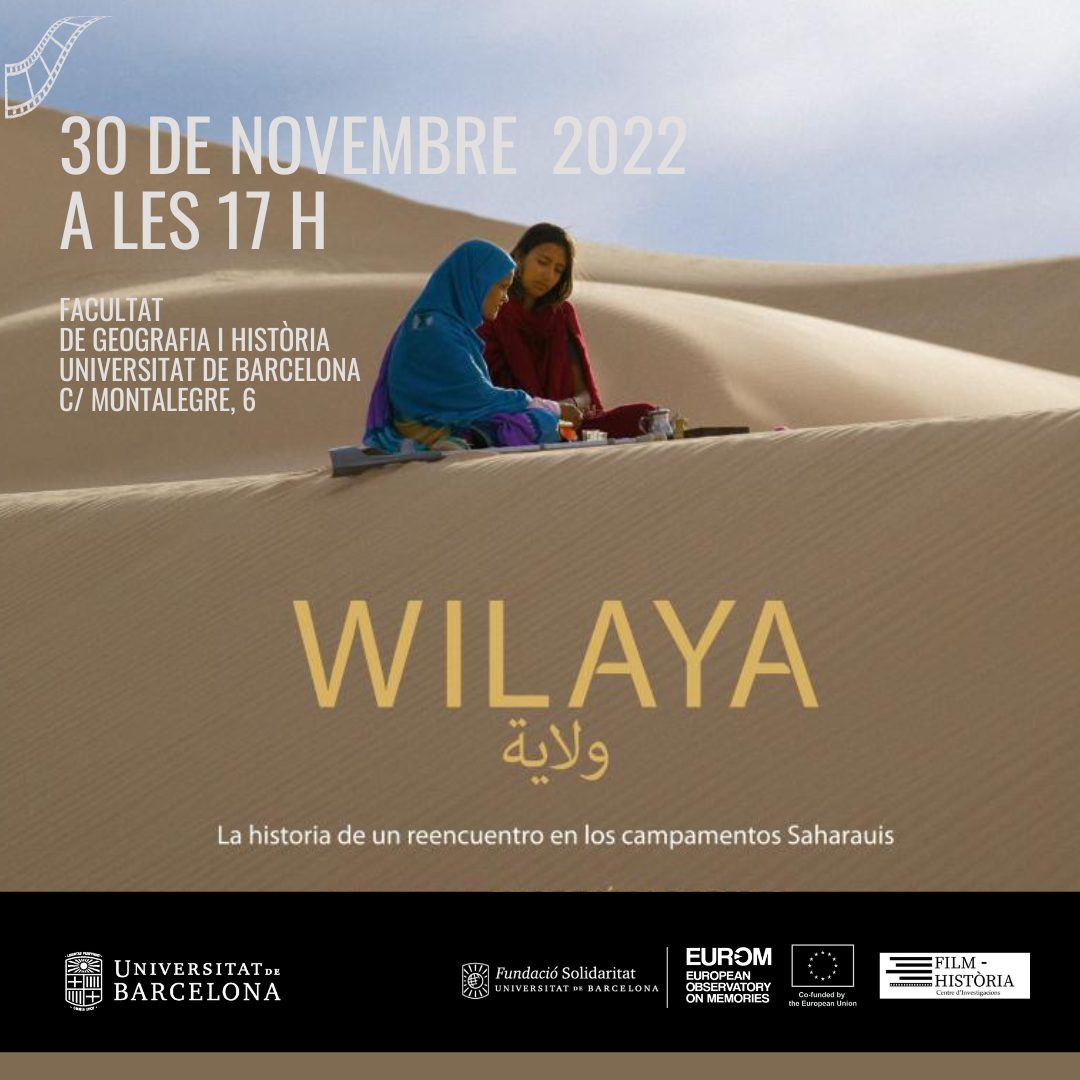- The second session of the film cycle “Women and Decolonization” will present the movie “Wilaya”, by Pedro Pérez Rosado (2012) on November 30 with the participation of Alicia Fernández Martínez, member of Film-History and head of the History Group of Nou Barris-Can Basté;
- The series is curated by Celeste Muñoz (UNED – EUROM) and Magi Crusells (UB) and organized in collaboration with Film-Història as part of the PhD program “Society and Culture” of the University of Barcelona;
- Attendance is free and open to the general public. Prior registration is required.
Session 2
November 30 at 5 p.m
Room 309 (3rd floor)
Wilaya (Pedro Pérez Rosado, 2011), with the participation of Alicia Fernández Martínez, member of Film-Història and head of the Nou Barris-Can Basté History Group
Synopsis
Wilaya is the name by which Sahrawi refugee camps are known. Fatimetu returns to one of these camps when his mother dies. She is a young Sahrawi woman who has lived in Spain since she was 6 years old. Wilaya meets his disabled sister Hayat and his brother Jatri who is expecting his first child. (FILMAFFINITY)
Session 3
December 14 at 5 p.m.
Aula Magna (4th floor)
Palmeras en la Nieve (Fernando González Molina, 2015) with Gustau Nerin, professor of African History at the University of Barcelona
Synopsis
It is 1953, Kilian leaves the mountain of Husca to undertake a trip with his brother to Fernando Poo, a former Spanish colony in Equatorial Guinea. Their father is waiting for them there, in the Sampaka farm, where he grows one of the best cacao in the world. In the colony they will discover that social life is more pleasant than in cramped and gray Spain, they will experience the contrasts between colonists and natives and they will know the meaning of friendship, passion, love, and hate. (FILMAFFINITY)
Background information
Women actively participated in the processes of decolonization both on the political front line and on the battlefront or in the rear. Their struggles and aspirations were integrated into the ideal of collective emancipation, after decades of denial of their political participation by the colonial States. However, in the current Eurocentric imaginaries about those processes and conflicts, fifty years later, the role of women has, as usual, been buried and silenced. For this reason, the aim of this cycle is to analyze this memory and its representation through cinema, with proposals that deal with the restitution of these experiences, but also with others that reproduce the colonial visions of decades ago.


